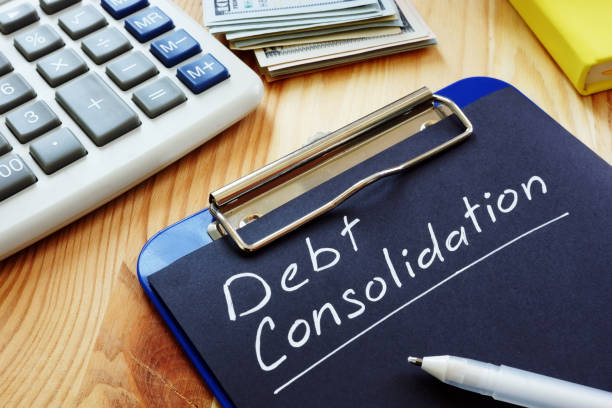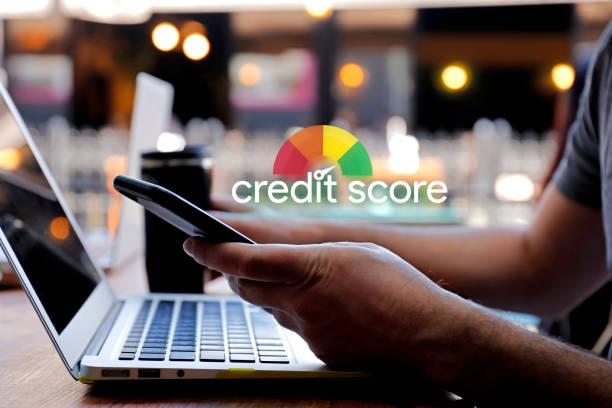Debt Consolidation: Is It The Right Choice For You?

Image Credits: iStock
Hey there! Let's talk about something that is on our minds these days: debt. If you are like many of us, you might have a credit card or two (or three), a student loan, a car loan, and maybe even a personal loan. Keeping track of all those different debts can feel like trying to juggle maple syrup bottles – sticky and overwhelming.
But fear not because there is a financial strategy that has been gaining traction and might just be your ticket to financial freedom – debt consolidation. Now, before you start picturing a magician waving a wand to make your debts vanish, let's be clear – debt consolidation is not magic. However, it can be a handy tool to help you better handle your financial situation.
In this blog, we will break down the world of debt consolidation. We will chat about what it is, how it works, and most importantly, whether it is the right choice for you.
What Is Debt Consolidation?
Debt consolidation is a financial strategy that involves rolling multiple high-interest debts into one, often with a lower interest rate. Instead of making several monthly payments to various creditors, you make a single payment to your debt consolidation provider.

Image Credits: iStock
Sounds pretty sweet, right? Here are some key aspects to consider.
● Combining Debts
Imagine you have a credit card balance, a car loan, and a personal loan. Each comes with its interest rate, due date, and monthly payment. Debt consolidation simplifies this mess by combining all those debts into one.
● Lower Interest Rates
One of the biggest perks of debt consolidation is the potential for a lower interest rate. By consolidating your debts, you may qualify for a loan or credit line with a lower interest rate than you currently pay. This can save you a ton of money over time.
● Single Monthly Payment
No more juggling multiple due dates and struggling to remember which creditor to pay and when. Debt consolidation means you make just one monthly payment, making budgeting a breeze.
The Different Flavours Of Debt Consolidation
Now that you have a basic idea of debt consolidation, we will explore the options available. There is no one-size-fits-all solution, so choosing the one that suits your financial situation best is crucial.
● Debt Consolidation Loans

Image Credits: iStock
This is the most common form of debt consolidation. You take out a personal loan or line of credit with a lower interest rate than your existing debts and use it to pay off those high-interest balances. The result? You have one loan to repay, often with more favorable terms.
● Home Equity Line of Credit (HELOC)
If you own a home, you can tap into your home equity to consolidate your debts through a HELOC. The interest rates are typically lower than unsecured loans, but remember that your home is collateral, so there is a level of risk involved.
● Credit Card Balance Transfer
Some credit cards offer balance transfer options, allowing you to transfer your existing credit card balances onto a new card with a low or 0% introductory interest rate. It can be a quick fix, but watch out for transfer fees and the higher rates after the introductory period.
● Debt Management Plans
If your debts are spiraling out of control, a debt management plan (DMP) might be the solution. Non-profit credit counseling agencies can help you create a DMP, which involves negotiating with creditors for lower interest rates and a structured repayment plan.
The Pros Of Debt Consolidation
When considering debt consolidation, it is essential to understand the potential benefits that can make it a smart financial move. Now, we will explore two critical advantages of consolidating your debts.

Image Credits: iStock
1. Simplified Finances
One of the most significant advantages of debt consolidation is simplification. Instead of trying to remember due dates, interest rates, and minimum payments for multiple loans and credit cards, you will only have one obligation to keep track of. This can make budgeting and financial planning much more straightforward.
2. Potentially Lower Interest Rates
Many people turn to debt consolidation because it often comes with lower interest rates than credit cards interest rates or other high-interest loans. This means more of your money goes towards paying the principal amount, helping you become debt-free faster.
3. Reduced Stress
Debt can be a significant source of stress and anxiety. With debt consolidation, you can reduce this emotional burden by having a clearer picture of your financial situation and a more achievable plan to get out of debt.
4. Fixed Monthly Payments
With debt consolidation, you will have a fixed monthly payment, which can make budgeting more manageable and more predictable. This stability can be beneficial if you are concerned about fluctuating interest rates on your current loans.
The Cons Of Debt Consolidation
While debt consolidation has its advantages, it is also essential to consider the potential drawbacks.

Image Credits: Freepik
1. Qualification Criteria
You typically need a decent credit score to qualify for a debt consolidation loan. If your credit history is less than stellar, you may struggle to secure a consolidation loan or be offered higher interest rates, which could negate some benefits.
2. Risk Of Prolonged Debt
Consolidating your debts can be a double-edged sword. While it simplifies your financial obligations, it can also tempt you to accumulate more debt, especially if you continue using credit cards or taking out loans. This could result in a cycle of debt that is even harder to break free from.
3. Costs And Fees
Debt consolidation is not free. Lenders may charge fees for initiating the loan or transferring your existing debts. Be sure to factor these costs into your decision-making process and compare them to the potential savings on interest.
4. Lost Benefits
Some of your existing loans or credit cards may offer benefits like rewards points or low balance transfer rates. Consolidating these debts could mean giving up these perks, so carefully weigh the pros and cons.
Is Debt Consolidation Right For You?
Now that we have laid out the pros and cons, we will delve into the factors you should consider when determining whether debt consolidation is the right choice for you.

Image Credits: iStock
● Your Credit Score
As mentioned earlier, your credit score significantly affects your eligibility for a debt consolidation loan and the interest rate you will be offered. If you have a high credit score, you are more likely to qualify for better terms. However, if your credit score is low, you may need to explore other debt-relief options.
● Your Financial Discipline
Debt consolidation can only be effective if you are committed to changing your financial habits. If you continue to rack up debt after consolidating, you will be even more challenging. Assess your financial discipline and be honest about avoiding accumulating new debts.
● Your Financial Goals
Consider your long-term financial goals. Do you want to be debt-free as soon as possible, or are you comfortable with a longer repayment term if it means lower monthly payments? Your financial goals should align with the consolidation loan terms you choose.
● Interest Rates
Compare the interest rates on your existing debts with the rate offered for the consolidation loan. If the new interest rate is significantly lower, it could save you money in the long run. However, debt consolidation may not be the best choice if the rate is higher.
● Fees And Costs
Do not forget to factor in any fees and costs associated with the consolidation loan. These expenses can affect your potential savings, so ensure the overall benefit is worth it.
● Alternative Options
Debt consolidation is just one of many debt relief options available. Explore alternatives like debt management plans, debt settlement, or even speaking with a credit counseling agency. Each option has advantages and disadvantages, so it is essential to explore all possibilities.
Steps To Take If Debt Consolidation Is Right For You
If you have assessed your financial situation and decided that debt consolidation is the right choice for you, here are the steps you should take:

Image Credits: iStock
1. Check Your Credit Report
Obtain a copy of your credit report before applying for a debt consolidation loan to ensure it is accurate. Dispute any errors you find, as they can affect your credit score and ability to secure a favorable loan.
2. Shop For The Best Loan
Research different lenders and loan options to find the one that offers the most favorable terms for your situation. Compare interest rates, fees, and repayment terms to make an informed decision.
3. Apply For The Loan
Once you have chosen a lender, complete the application process. Be prepared to provide financial documents, such as pay stubs, bank statements, and information about your debts.
4. Create A Budget
Develop a budget to make your new consolidated loan payment comfortably. This should also include a plan to avoid accumulating additional debt.
5. Make Timely Payments
Once you have your debt consolidation loan, make your monthly payments on time. Late payments can harm your credit score and financial stability.
6. Monitor Your Progress
Regularly review your financial situation to ensure you are making progress toward becoming debt-free. Adjust your budget and repayment strategy as needed.
The Bottom Line
Debt consolidation can be a game-changer for people struggling with multiple high-interest debts. It simplifies your financial life, reduces your interest payments, and can even boost your credit score. However, it is not a one-size-fits-all solution, and weighing the pros and cons carefully is essential.
Before making any decisions, assess your financial situation, research your options, and consult with a professional if needed. Remember that debt consolidation is a tool to help you get back on track, but it requires commitment and responsible financial management.
So, is debt consolidation the right choice for you? It could be, but the final verdict depends on your unique circumstances and financial goals.
Here is to a debt-free future and financial peace of mind!


